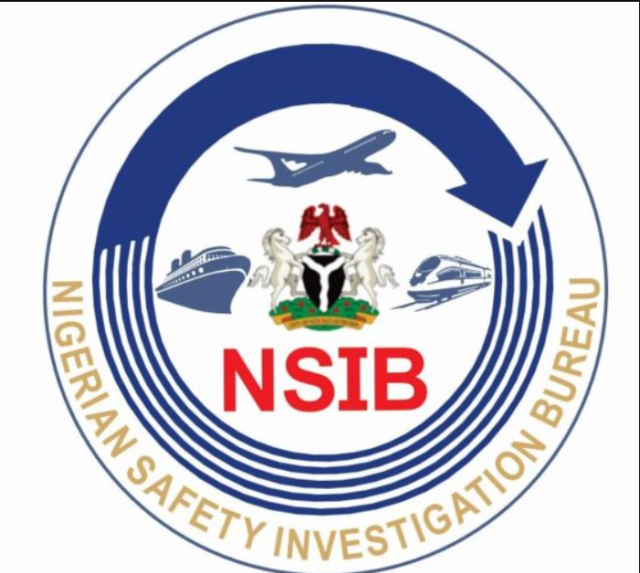A proposed bill seeking to relocate the Nigerian Safety Investigation Bureau (NSIB) from the Federal Ministry of Aviation and Aerospace Development to the Office of the Secretary to the Government of the Federation (OSGF) has stirred division among key stakeholders in the nation’s transport sector.
During a public hearing organised by the joint House Committees on Special Duties and Aviation on the bill to amend the NSIB Act (2022) on Wednesday in Abuja, the Ministry of Aviation opposed the move, warning that detaching the bureau from its current supervisory structure could undermine sectoral coordination.
The NSIB was established in 2022 via Act No. 35, referred to as the NSIB (Establishment) Act, 2022, as the successor to the Accident Investigation Bureau (AIB) and is tasked with investigating transportation accidents across air, marine, rail, and tracked vehicle systems in Nigeria.
Permanent Secretary in the ministry, Dr. Abubakar Kana, argued that retaining the bureau under the aviation ministry while strengthening its legal and operational framework would better safeguard its functional independence.
“I recommend that the National Assembly and its relevant stakeholders retain the Nigerian Safety Investigation Bureau within the Federal Ministry of Aviation,” Kana said.
However, supporting the bill, the Permanent Secretary for Political and Economic Affairs at the OSGF, Engr. Gagare Nadungu argued that the Presidency, through the SGF, offers a centralised coordination structure better suited to host the bureau.
He maintained that placing the NSIB under the Presidency would promote broader national oversight and institutional independence.
Echoing this position, the Permanent Secretary, Federal Ministry of Special Duties and Intergovernmental Affairs, Dr. Onwusoro Maduka, stressed the need for the bureau to operate independently, especially in the conduct of accident investigations.
In his remarks, Speaker of the House of Representatives, Tajudeen Abbas, described the amendment as a proactive effort to enhance transport safety and align Nigeria’s systems with global standards.
Represented by Kwamoti Laori, the speaker noted that the House is ready to provide the legislative support necessary to strengthen key sectors of the national economy, adding that aviation, land, and maritime transport collectively form the backbone of any modern, thriving society.
Also speaking at the hearing, Chairman of the House Committee on Special Duties, Hon. Agbedi Fredrick, described the session as a platform for inclusive governance and constructive dialogue.
“We are here today because we care about the safety of Nigerians whether in the air, on land, or at sea,” he said. “We also believe in the value of public input in shaping laws that impact our national infrastructure. Your voices—as experts, operators, civil society actors, and concerned citizens are crucial. The success of this process depends on your honest contributions and informed perspectives.”
Sponsor of the bill, Isiaq Akinlade, argued that the bureau’s current placement under the aviation ministry hampers its effectiveness due to institutional bottlenecks, lack of independence, and poor inter-agency coordination across Nigeria’s transport regulatory ecosystem.
“Globally, leading accident investigation bodies like the National Transportation Safety Board (NTSB) in the United States operate as autonomous agencies, reporting directly to the highest levels of government. This structure guarantees independence, credibility, and efficiency in accident investigations.”
He listed key challenges confronting the NSIB, including a lack of institutional independence, raising concerns about impartiality and operational autonomy.
He added, “Overlapping mandates with agencies such as the FRSC, NCAA, NIMASA, NIWA, and NRC, which operate under different ministries but perform similar accident investigation functions; Limited access to high-level decision-making required to resolve inter-agency conflicts and implement safety recommendations.”
According to him, the current structure, tied to a single ministry, restricts the bureau’s autonomy and compromises its credibility.
“International best practices favour independent investigative bodies. Relocating the NSIB to the presidency would help overcome these structural limitations and empower the bureau to fulfil its mandate across Nigeria’s multi-modal transport sector,” he added.







